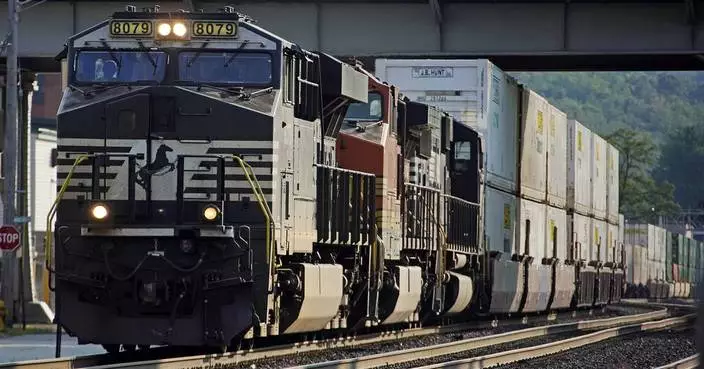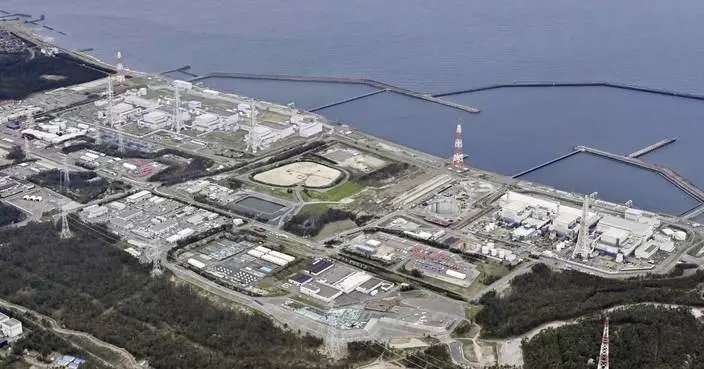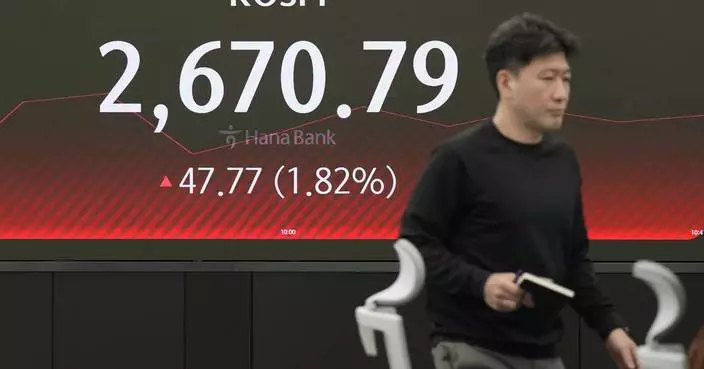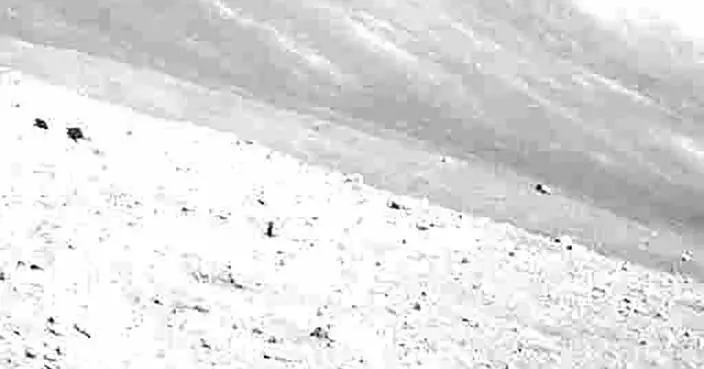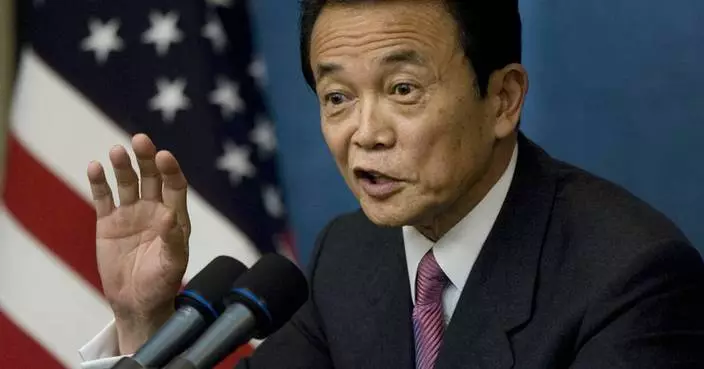Japan's Prime Minister Shinzo Abe warned the U.S. on Friday that higher tariffs on auto imports would backfire and harm not only America's jobs and economy but also devastate the global economy.
Abe told a news conference marking the end of a Diet session that Japan's auto and auto parts industry has never threatened America's national security and it never will. Abe said he will keep explaining that to Trump.
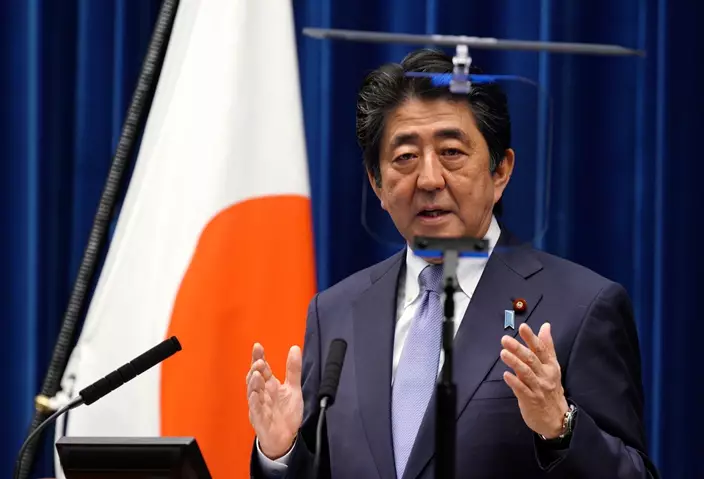
Japanese Prime Minister Shinzo Abe delivers a speech during a press conference at the prime minister's official residence in Tokyo Friday, July 20, 2018. (AP Photo/Eugene Hoshiko)
Trump has ordered the U.S. government to investigate if higher tariffs on foreign-made vehicles and auto parts are justified on national security grounds.
Japan's auto industry has for decades invested billions of dollars in U.S. plants that employ hundreds of thousands of workers. Japanese automakers produce twice as many vehicles in the U.S. as they export from Japan, Abe said.
"Japan provides good jobs and contributes greatly to America's economy," Abe said. "If restriction measures were imposed, such employment will be lost, and not only will it have a negative impact on the U.S. economy but also cause tremendous damage to the world economy."
Abe's government last month sent a report to the U.S. Department of Commerce, warning against any trade restrictions.
In that report, Japan's government said any trade restrictions, if imposed, would increase costs for U.S. consumers and cause many Americans to lose jobs. It said the measures would put a break on global trade, disrupt the market and put global free trade "at great risk."
Up to 624,000 people could lose their jobs in the U.S. if a 25 percent tariff was levied on automobiles and auto parts and other countries retaliated.
Abe said he has repeatedly reminded Trump of Japanese automakers' contribution to his country.
"Exchanges of trade restriction measures will benefit nobody," Abe said. "While explaining these points, we will persistently work hard to avoid trade restriction measures."
Already hit by increased U.S. steel and aluminum tariffs, Japan has told the World Trade Organization it may levy retaliatory tariffs on U.S. goods totaling about 50 billion yen ($450 million) a year.
UNITED NATIONS (AP) — Russia on Wednesday vetoed a U.N. resolution sponsored by the United States and Japan calling on all nations to prevent a dangerous nuclear arms race in outer space.
The vote in the 15-member Security Council was 13 in favor, Russia opposed and China abstaining.
The resolution calls on all countries not to develop or deploy nuclear arms or other weapons of mass destruction in space, as banned under a 1967 international treaty that included the U.S. and Russia, and to agree to the need to verify compliance.
U.S. Ambassador Linda Thomas-Greenfield said after the vote that Russian President Vladimir Putin has said Moscow has no intention of deploying nuclear weapons in space, but that the country's veto raises the question of what the government may be hiding.
THIS IS A BREAKING NEWS UPDATE. AP’s earlier story follows below.
UNITED NATIONS (AP) — The U.N. Security Council is set to vote Wednesday on a resolution sponsored by the United States and Japan calling on all nations to prevent a dangerous nuclear arms race in outer space. It is likely to be vetoed by Russia.
The resolution calls on all countries not to develop or deploy weapons of mass destruction, like nuclear arms, in space.
U.S. Ambassador Linda Thomas-Greenfield told a council meeting on March 18 where she announced the resolution that “any placement of nuclear weapons into orbit around the Earth would be unprecedented, dangerous and unacceptable.”
Russia’s deputy U.N. ambassador, Dmitry Polyansky, retorted that Moscow’s initial impression was that the resolution is “yet another propaganda stunt by Washington” and is “very politicized” and “divorced from reality.”
The announcement of the resolution followed White House confirmation in February that Russia has obtained a “troubling” anti-satellite weapon capability, although such a weapon is not operational yet.
Russian President Vladimir Putin declared later that Moscow has no intention of deploying nuclear weapons in space, claiming that the country has only developed space capabilities similar to those of the United States.
The draft resolution says “the prevention of an arms race in outer space would avert a grave danger for international peace and security.”
It urges all countries carrying out activities in exploring and using outer space to comply with international law and the U.N. Charter.
The draft “affirms” that countries that ratified the 1967 Outer Space Treaty must comply with their obligations not to put in orbit around the Earth “any objects” with weapons of mass destruction, or install them “on celestial bodies, or station such weapons in outer space.”
The treaty, ratified by some 114 countries including the United States and Russia, prohibits the deployment of “nuclear weapons or any other kinds of weapons of mass destruction” in orbit or the stationing of “weapons in outer space in any other manner.”
The draft resolution emphasizes “the necessity of further measures, including political commitments and legally binding instruments, with appropriate and effective provisions for verification, to prevent an arms race in outer space in all its aspects.”
It reiterates that the U.N. Conference on Disarmament, based in Geneva, has the primary responsibility to negotiate agreements on preventing an arms race in outer space.
The 65-nation body has achieved few results and has largely devolved into a venue for countries to voice criticism of others’ weapons programs or defend their own. The draft resolution urges the conference “to adopt and implement a balanced and comprehensive program of work.”
At the March council meeting where the U.S.-Japan initiative was launched, U.N. Secretary-General António Guterres warned that “geopolitical tensions and mistrust have escalated the risk of nuclear warfare to its highest point in decades.”
He said the movie “Oppenheimer” about Robert Oppenheimer, who directed the U.S. project during World War II that developed the atomic bomb, “brought the harsh reality of nuclear doomsday to vivid life for millions around the world.”
“Humanity cannot survive a sequel to Oppenheimer,” the U.N. chief said.

FILE - U.S. Ambassador to United Nations Linda Thomas-Greenfield speaks on Thursday, April 18, 2024, in Tokyo. The U.N. Security Council is set to vote Wednesday, April 24, 2024, on a resolution announced by Thomas-Greenfield, calling on all nations to prevent a dangerous nuclear arms race in outer space. It is likely to be vetoed by Russia. (AP Photo/Eugene Hoshiko, Pool, File)





